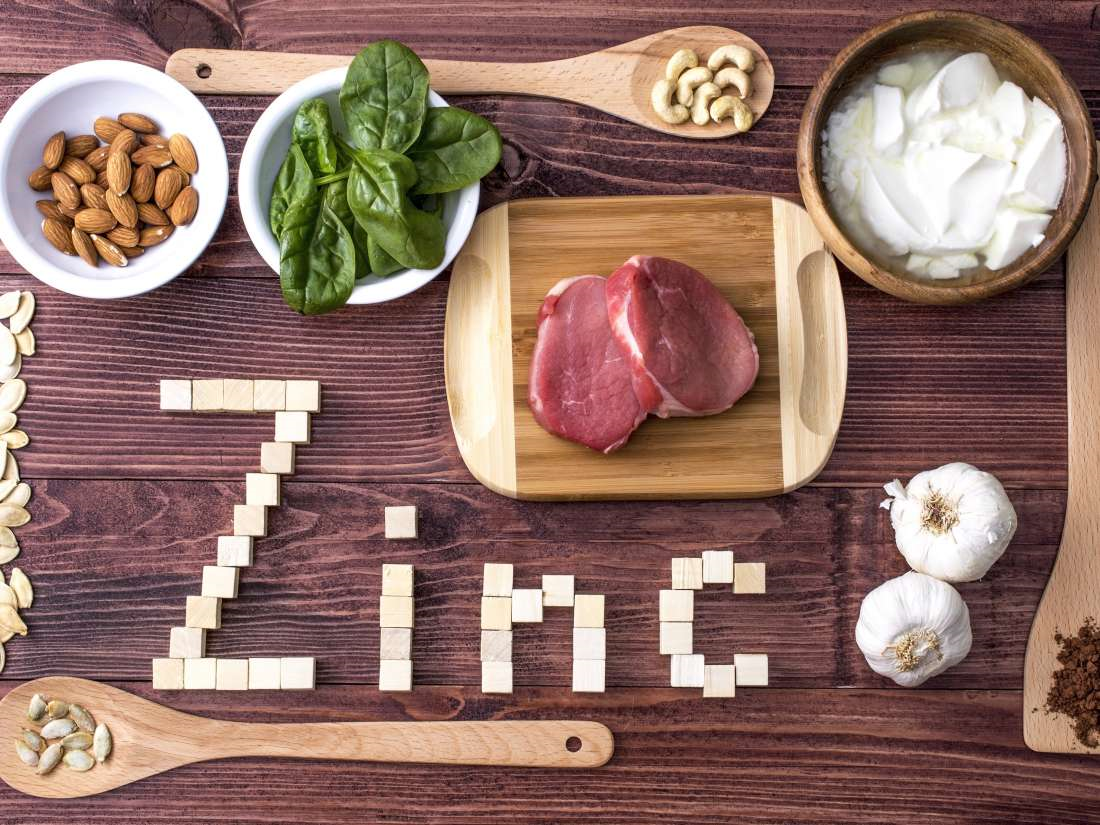The mineral is essential forstrengthening the immune system. Having a diet rich in minerals is essential to maintain good health. Zinc plays a significant role in our health. “This mineral is essential for our body to continue functioning effectively. It protects us from a large number of diseases and helps fight others that have already settled in our bodies,” says nutritionist Natalia Lauterbach, Network World Green on Sao Paulo. Zinc Deficiency by inadequate zinc in the diet
The lack of zinc in the diet is a serious problem, which according to the World Health Organization, is linked to many cases of deaths since this mineral has an important function in our immune system. The problem is more common in less developed countries, but zinc deficiency also affects the richer countries too.
According to WHO, “The minimum consumption of zinc should be seven milligrams per day for women and about nine milligrams for men. It may vary according to age. For the elderly, for example, the number rises to eight for women and eleven for men.
WHO also informs that people who do not consume sufficient amounts of zinc, are more likely to suffer from the action of infectious agents, and therefore spend more time with patients compared to those with an adequate zinc intake.
Zinc’s Role in the body
The main role of zinc in the body happens in the immune system. “Zinc is important for the synthesis of immune cells in their action as a defense against viruses, bacteria, and fungi,” says Natalia Lauterbach.
Zinc also protects the body by having antioxidant activity, & reducing the number of free radicals in our body. This type of molecule negatively affects cell function and increases the chances of developing different types of cancer.
Also, approximately 100 different enzymes require zinc to catalyze chemical reactions that maintain efficient cellular functions. Therefore, zinc has an important role in our immunization; it helps almost all of the body to work better.
Child Nutrition
Zinc is especiallyimportant for children. Adequate intake of this mineral is essential for small children to grow healthily. According to WHO, some of the biggest causes of infant death are diarrhea, which still causes 18% of deaths among children worldwide, and the second reason is pneumonia, these both have a direct relation with the lack of zinc.
“The immune system of children is more fragile than adults, so a diet rich in zinc is essential,” says nutritionist. To get an idea of the importance of zinc in the diet of a child, one of the most widely held by the World Health Organization to reduce child deaths in poor countries is to include supplements of zinc in the diet. Since this measure was adopted in the late 1980s, the deaths from diarrhea worldwide in children under five years fell from 4.5 million to 1.8 million in 2006.
Zinc supplements for pregnant women
According to a survey conducted by UNICEF in 2009, zinc supplements for pregnant women can prevent many complications during childbirth and also help the baby gain weight after birth, reducing the risk of infection. Therefore, it is shown that pregnant women consume daily 12 mg of zinc.
Age, Men, Women
- 1 to 3 years, 3.0 mg, 3.0 mg
- 4 to 8 years, 5.0 mg, 5.0 mg
- 9 to 13 years, 8.0 mg, 7.0 mg
- 14 to 50 years, 8.0 mg, 7.0 mg
- 50 years, 11.0 mg, 8.0 mg
Symptoms of lack of zinc
As the zinc works in different functions of our body, lack of it has consequences, such as:
The impaired immune system, Injuries that do not heal, Lack of Taste or Smell, Skin Problems (psoriasis), increased levels of blood glucose, Dry and yellowish skin, liver malfunction, etc.
“Among all these problems, the most worrisome is the adverse effects caused by the lack of zinc in the immune system. This causes the body to become much more exposed to any infectious disease,” explains nutritionist.
Sources of zinc
A balanced diet provides the daily amounts of zinc in our body. Oyster is a good choice to treat Zinc deficiency, but other common sources may be part of our daily menu. But in some cases, only food cannot provide the body with the missing quantity of zinc. “Food is always the best option, but in some cases, with the advice of a doctor, you need to invest in supplements to achieve the daily doses of this mineral,” says Natalia Lauterbach.
“A diet with nuts, like walnuts and chestnuts, all kinds of meat, rice and bread already make our immune system work well,” says nutritionist. Besides these foods, pumpkin seeds, oats, beans, and whole milk are also good sources of this mineral.
Moreover, according to nutritionists, people suffering from lack ofzinc absorption by the intestine, diabetes, eating disorders, intestinal disorders and kidney disease may need zinc supplements to compensate for the lack of absorption caused by these problems.
Food Weight Amount of zinc (mg)
- Oysters 86 g 38
- Nuts 100g 4.0
- Chestnuts 100g 4.0
- Beef 130g 4.0
- Chicken 180g 1.5
- Brown rice 40g 1.0
- Oat bran 94g 2.9
- Whole milk 240g 1.0
- Beans 50g 1.15
- Pumpkin seed 20g 1.3
- Brown bread 80g 1.6
Powerful combinations
According to the U.S. Department of Agriculture, several servings of foods should be combined so that the daily quota of minerals is met. To illustrate this recommendation, we can say that a portion of beef (4 mg of zinc), two rice (2 mg), and two of milk (2 mg) per day providing a total of 8 mg of zinc, which represents consumption indicated for adolescents and adults.
Symptoms of excess zinc
Even though this mineral is essential for our bodies to consume it in excess (more than 50 milligrams a day for weeks), can be unhealthy. This happens because of the relationship with the molecules of the mineral copper in the body. Explains nutritionist, Read also Pubg pc.
The main symptoms of excess zinc and lack of copper in the body are diarrhea, drowsiness, lethargy, nausea, and frequent vomiting. “Therefore, before taking supplements, you need to know if they are needed and what is the recommended dose,” says the expert.


























